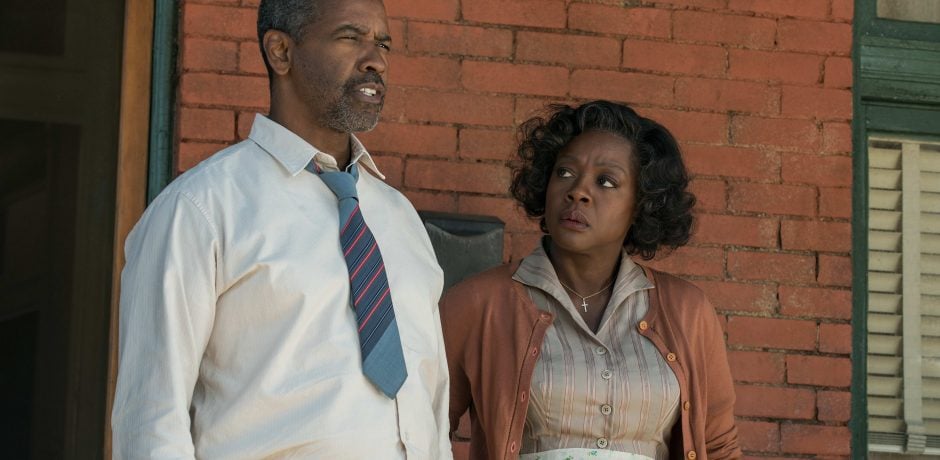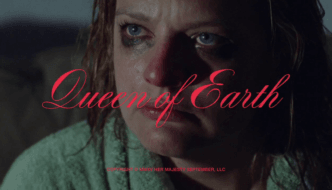
Fences (2016), an American drama based on the play written by August Wilson, tells the story of the Maxson family in 1950s Pittsburgh. Directed by and starring Denzel Washington, the film explores the lives of African Americans in the US through one family’s experiences, exposing truths about oppression, heritage, religion, family, and the pressures the underprivileged black man carries in trying to provide for his family in a white man’s world.
These truths are delivered throughout the film in the form of conversations about real life issues of an African American in the 1950s. The characters discuss equality, heritage, money, and work, often in a heart-warming and comical tone. A good part of the film’s story is full of laughter and joy; these characters take their issues in their stride. The characters agree that there has ‘never been a time too early’ to start thinking about black rights. They speak of equality in the now. The audience are invited into the family’s home, live-in guests throughout the film. The camera movement and edits between shots offers different character perspectives, as if the audience is there in the room and able to glance between each face. This conversation-driven narrative allows the film to flow seamlessly, telling the family’s story in a style that is at once both veristic and cinematic.
The film follows the life of Troy Maxson (Denzel Washington) and his family. A bitter man, Troy has been hardened by past events, and years of experience of racism and poverty. The principles that matter to him are much different to those of his youngest son Cory (Jovan Adepo), and the film skilfully exploits this inter-generational tension, pitting the simple life against notions of progress and modernity. Troy stubbornly adheres to a primitive way of living, one occupied by survival and self-preservation. His son, however, wants the opportunity to strive further than mere subsistence, a life full of enjoyment, fulfilment and success, telling his father he ‘wants a reason to wake up in the morning’. This conflict plays out in the film as Troy struggles to accept his son’s ideals. Notably, never having been able to follow his own dreams of becoming a baseball player, watching his son revel in a sport that is a part of the heritage of the exact culture which stopped Troy from achieving his dream sickens him.
Rose, played by Viola Davis, is the film’s only female figure. The composition of the shot when Rose enters the film for the first time places her below men in terms of the hierarchy. She is included in the conversations between the men, yet she is always in the background. The film therefore presents a layering of the oppression of the marginalised: in a broader sense, the audience is exposed to the oppression of blacks by whites through watching the life of the Maxson family. Yet, beneath this surface there is an oppression of the black woman as marginalised within a larger marginalised group of society. Perhaps it is these power disparities which lend the film an ominous, foreboding tone, which bubbles under the surface before exploding into a row between Troy and his wife. Viola Davis offers a raw, emotional portrayal of the stay at home black wife whose voice is drowned out by society’s noise.
The film offers heartfelt drama, astute social observations, and a compelling insight into African American culture in all its forms: a tender celebration of black lives and history as told through family, music, sport and religion.
Fences is out now in cinemas across Manchester and the rest of the U.K.
Filed under: Film, TV & Tech
Tagged with: August Wilson, black history, civil rights, Denzel Washington, Fences, film, film review, institutional racism, Jovan Adepo, modernity, Racism, youth culture



Comments